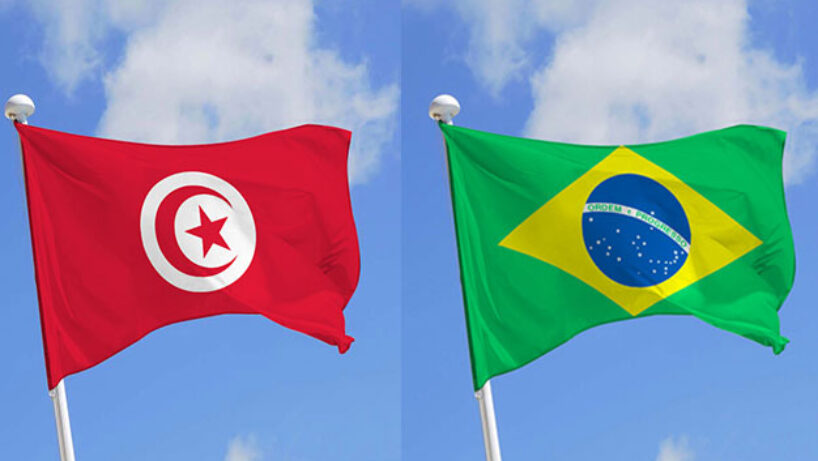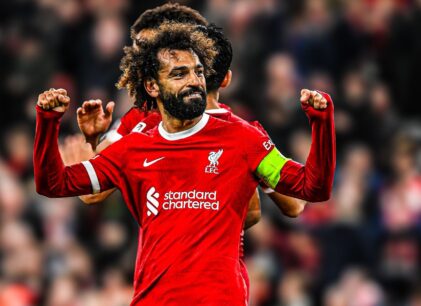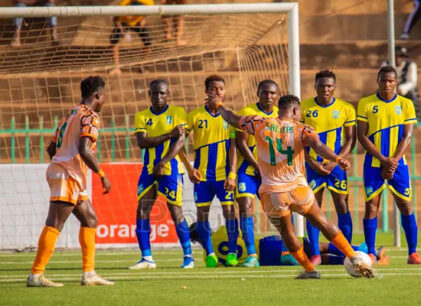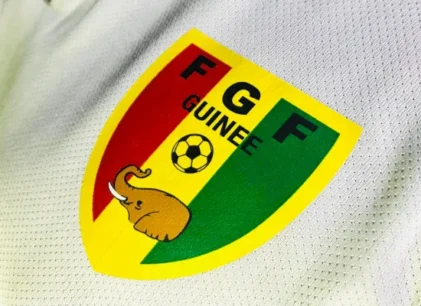The first international break of the 2022-2023 season should have been dedicated to the 2023 African Cup of Nations qualifiers. But the shift of the final phase calendar from June-July 2023 to January-February 2024 has automatically led CAF to change the dates of the qualifiers. The African selections will therefore play friendly matches, although some will remain inactive.
It’s not that African soccer has been slowing down since the last few matches in June, whether they were friendlies or qualifiers for the Ivorian Cup of Nations, but seeing the national teams return always brings a certain amount of excitement for fans and journalists alike. Of course, since the goodbyes of more than three months ago, all this pretty little world has been able to occupy itself, following the qualifications for the CHAN 2023, the COSAFA Cup in South Africa, the national championships and the resumption of interclub competitions, at the beginning of the month.
The postponement of the AFCON 2023 qualifiers was already part of the demands of the five global players (Cameroon, Tunisia, Ghana, Senegal and Morocco) even before CAF and the Ivorian government realized that it was very difficult to play soccer in June and July, in a country where the rains are often heavy at this time of year. Anyone can be wrong: the 2022 World Cup was awarded to Qatar in 2010, and no one at the time paid attention to the climatic conditions in the small emirate, where temperatures, which can reach 50 degrees in June and July, are said to be incompatible with soccer. The shift in the AFCON calendar will therefore allow the five representatives of the African continent to play one last time, since it will still be possible to play in November, before the start of the World Cup (20 November-18 December).
Wednesday, September 21. Libya and Uganda will be the first to play, in the opening match of a triangular tournament organized in Benghazi and which also involves Tanzania. San Marino, the weakest of the European teams and which has not won a match since 2004 will host the Seychelles, which is a little more often to win. The islanders have never faced a nation from the Old Continent in their history. On Wednesday night, this mistake will be definitively repaired…
But it is from Friday, September 23 that the serious things will really begin. Algeria, in full redemption since its failures of the first quarter – elimination from the first round of the AFCON and the World Cup – will host Guinea in its new home of Oran, whose attitude will be observed with Andy Delort, back with the Fennecs a year after a spectacular fallout with Djamel Belmadi.
Above all, four of the five world champions, who had the good taste to choose the same date for their first performance of the season, will obviously be observed with a little more attention than the others. Ghana will face Brazil in Le Havre, Morocco will face Chile in Barcelona with Walid Regragui in his new coach’s suit and Hakim Ziyech on the field, Cameroon will face Uzbekistan in South Korea and Tunisia will face Comoros, behind closed doors in Croissy-sur-Seine, in the Ile-de-France.
We will also follow the first game of the DR Congo against Burkina Faso under the orders of Sebastien Desabre, who has just recovered a team bruised by its absences in Cameroon and Qatar, and which has so badly negotiated the first two days of the qualifications for the CAN in Côte d’Ivoire (two defeats) that it could well prolong its penance.
Two matches for the Elephants, traffic jam in Morocco
The next day, while Jean-Louis Gasset’s Ivory Coast will face Togo in Rouen before heading to Amiens to meet Guinea on September 27, Senegal will know a little more about themselves and incidentally about South American soccer by facing Bolivia, an opponent supposedly similar to Ecuador, one of their rivals in Qatar. Sadio Mané, who has been struggling at Bayern Munich for the past few weeks, could take advantage of his reunion with the national team to regain strength before returning to his club
Then, on September 27, Cameroon, Morocco, Ghana, Tunisia and Senegal will play again, respectively against South Korea, Paraguay, Nicaragua, Brazil and Iran, in a program with a strong Latin American flavour. The crowd at the Parc des Princes in Paris will probably be the most spoiled – and the most numerous – to see how Wahbi Khazri’s Tunisia will keep Neymar, who is in top form with Paris-SG and playing in his own backyard at the Porte de Saint-Cloud, at a respectable distance from his goal.
But the attention paid to these five teams should not overshadow the rest of the copious program of other African teams, while some (Gambia, Gabon, Central African Republic, South Sudan, Namibia …) have chosen, often for financial reasons, not to occupy the international scene. Several will be in Morocco for a quadrangular tournament with Madagascar, Benin, Congo and Mauritania, or for simple friendly matches (DR Congo, Sierra Leone, Burkina Faso, Comoros, Togo, Rwanda, Equatorial Guinea). Others have taken the direction of Egypt, since the Pharaohs will try to recover against Niger and Liberia, which is not insurmountable, after a litany of disappointments during the first semester.
THE COMPLETE PROGRAM
September 21: San Marino-Seychelles and Libya-Uganda
September 23: Algeria-Guinea; Bahrain-Cape Verde; Brazil-Ghana; Burkina Faso-DRC Congo; Uzbekistan-Cameroon; Morocco-Chile; Ethiopia-Sudan; Egypt-Niger – Mali-Zambia; Rwanda-Equatorial Guinea; Algeria-A’-Nigeria
September 24: Senegal-Bolivia; Ivory Coast-Togo; South Africa-Sierra Leone; Madagascar-Congo; Mauritania-Benin; Martinique-Guinea-Bissau; Tanzania-Uganda.
September 25: Niger-Liberia
September 26: Mali-Zambia
September 27: Brazil-Tunisia; Algeria-Nigeria; Burkina Faso-Comoros; DR Congo-Sierra Leone; Egypt-Liberia; Ghana-Nicaragua; Ivory Coast-Guinea; Senegal-Iran; South Africa-Botswana; South Korea-Cameroon; Congo-Mauritania; Benin-Madagascar; Ethiopia-Sudan; Togo-Equatorial Guinea
September 29: Algeria-Sudan





